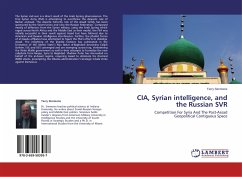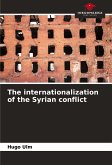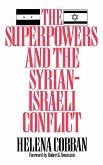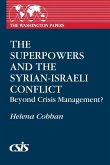What domestic factors created the Syrian conflict? How are the Syrian war and regional power connected? What are the causes and effects of the foreign-domestic relationships in the Syrian conflict? This book examines political relations within the Syrian conflict through a historical, theoretical, and economic lens. Many described the war as sectarian by nature; however, the conflict is primarily a by-product of competitive self-interest. Syrian integrity is fragmented due to the incongruence of a dictatorial state and a marginalized populace. Instability following the Syrian uprising allowed foreign intelligence services, militaries, and jihadists to influence Syrian fighters. Indecision by the greater international community enabled Saudi Arabia, Iran, Qatar, Hezbollah, and Turkey to become heavily entrenched in the conflict. The chaos in Syria is spilling into neighboring nations, while also becoming another front in the battle for regional supremacy between Saudi Arabia and Iran. Out of necessity, Syrian rebels and government forces are temporarily proxies of regional powers. These alliances dually threaten international security and Syria's future as a unified nation.
Bitte wählen Sie Ihr Anliegen aus.
Rechnungen
Retourenschein anfordern
Bestellstatus
Storno








